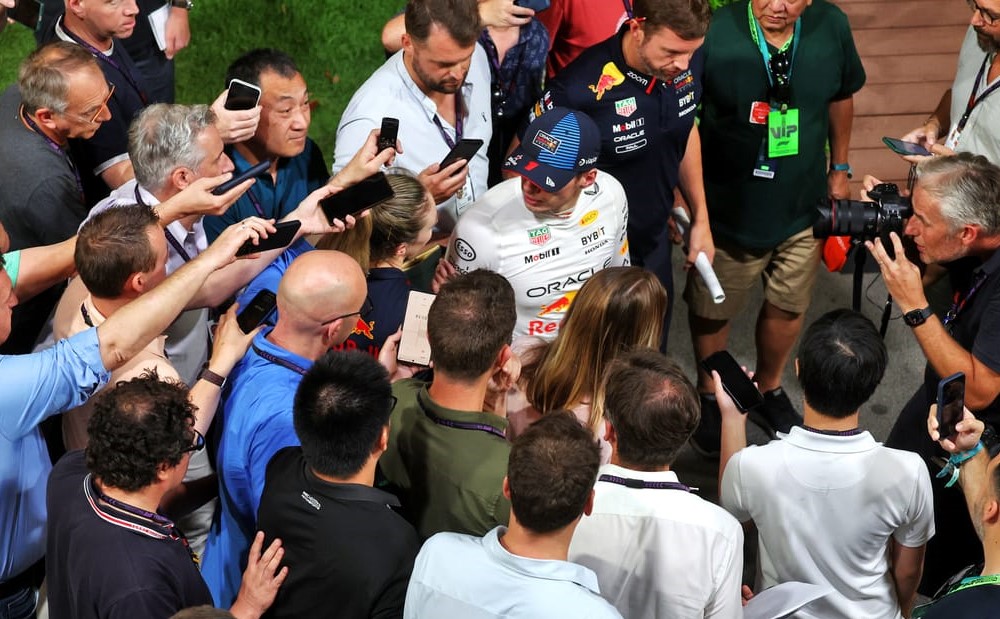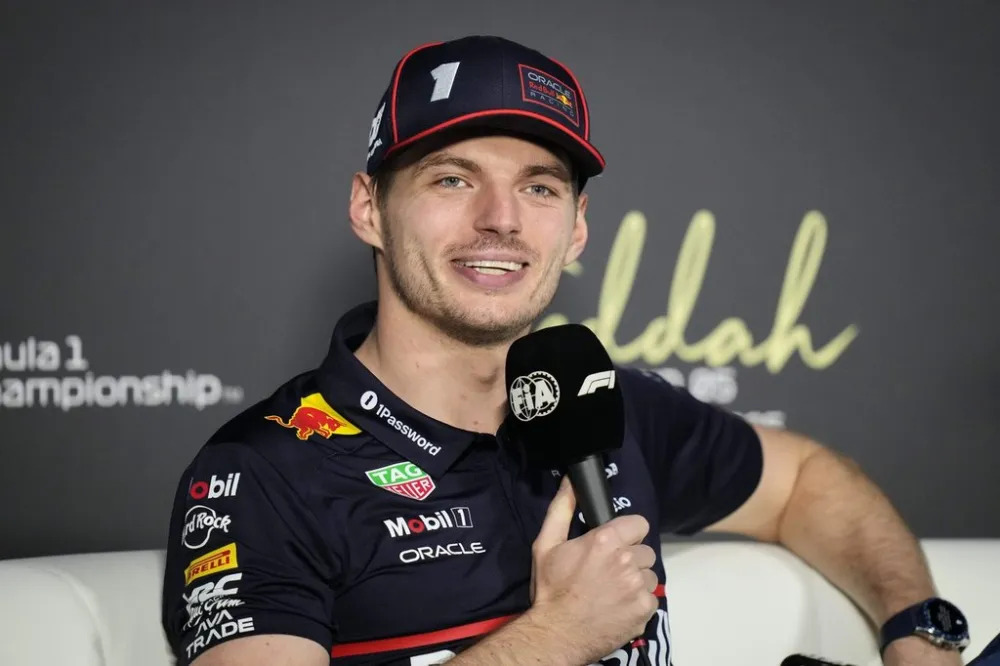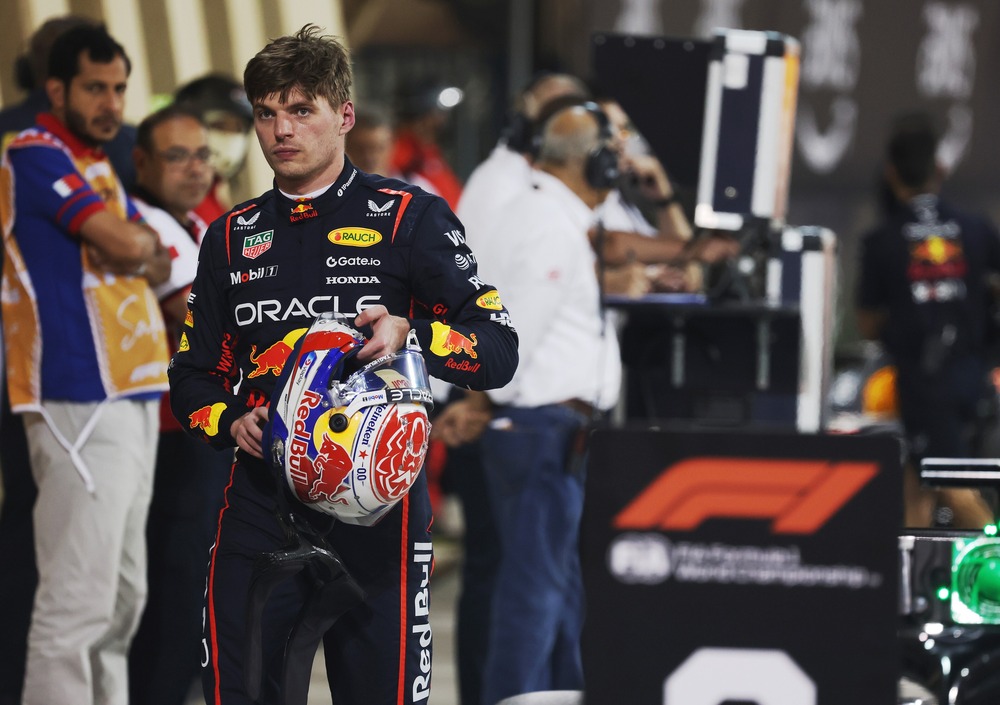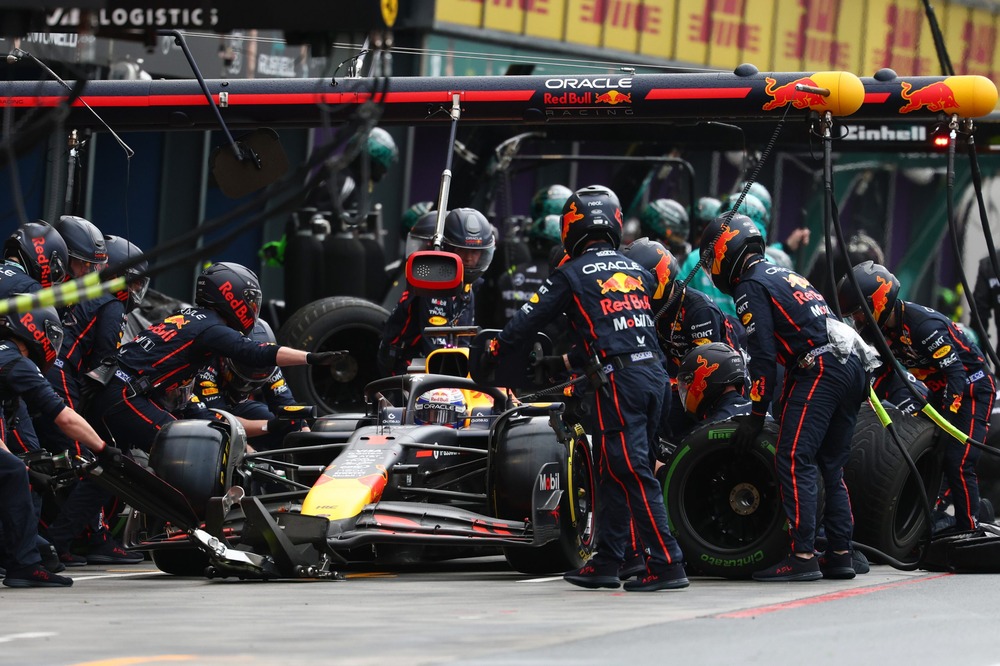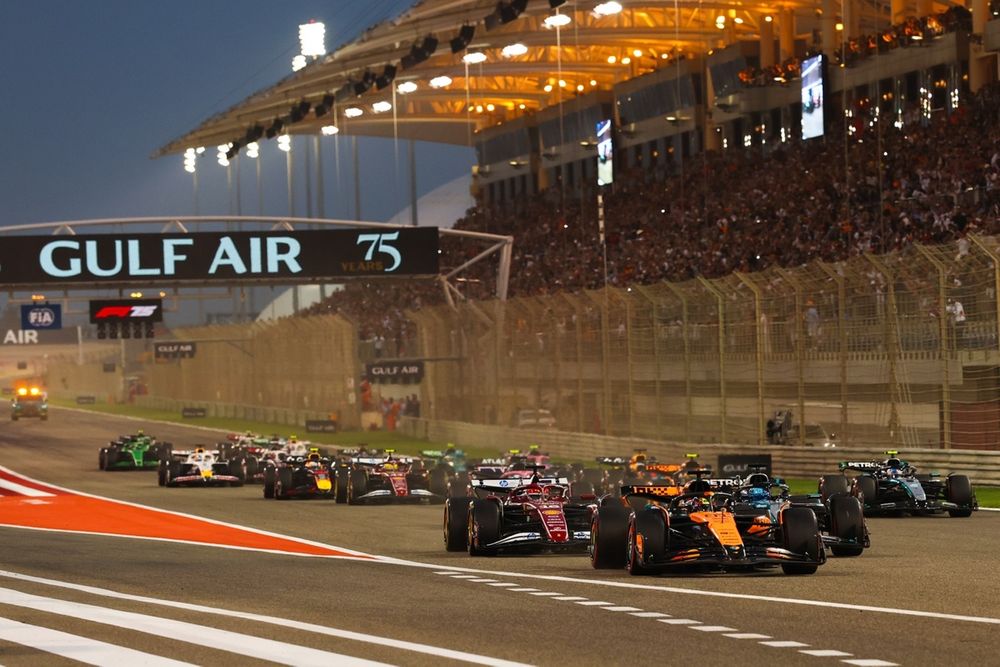Max Verstappen stages protest against FIA’s ruling that he must undertake “some work of public interest” as a penalty for swearing during a press conference.
The incident unfolded in the lead-up to the Singapore Grand Prix, where the reigning champion’s candid remarks about his car’s performance have sparked discussions about the boundaries of driver expression and the FIA’s regulatory authority.
While responding to a question about his qualifying performance in Baku, Verstappen used explicit language to describe his car stating that it was “f***ed”. The stewards deemed later his language inappropriate and imposed a penalty requiring him to complete “some work of public interest.”
The FIA’s ruling has not only drawn criticism from Verstappen but also from fellow drivers, including Lewis Hamilton and Lando Norris, who have publicly expressed their support for the Dutchman.
In the aftermath of the ruling, Max Verstappen stages protest during the post-qualifying press conference at the Singapore Grand Prix. He adopted a strategy of providing short and curt responses to media inquiries, effectively limiting his engagement with journalists.
Normally, the Dutchman would have addressed host Tom Clarkson’s opening question by thanking Red Bull for the work it did over night to return the RB20’s to form. However, that was followed by an odd conversation:
Tom Clarkson: What did you change overnight?
Max Verstappen: A lot.
TC: Can you elaborate?
MV: No I might get fined or get an extra day [of community service].
TC: Well look Max, are you confident of the race pace?
MV: Maybe.
TC: How much of the race is a step into the unknown given the problems you had in practice?
MV: It’s an unknown.
TC: Tell us about lining up on the…
MV: This is not about you, don’t worry. I don’t want to upset you.
TC: We’re fine but can you just tell us about lining up alongside Lando in terms of the championship battle and your tactics in the race?
MV: We’ll find out tomorrow.
When asked about his decision to withhold answers, the Red Bull star quipped: “Ridiculous what happened, so why should I then give full answers, because it’s very easy to get a fine or you get some sort of penalty.
“So I prefer then not to speak a lot, save my voice. I mean, we can do the interviews somewhere else and give you any resources you want if you need some answers, if questions are asked.”
Verstappen’s actions have raised questions about the FIA’s approach to regulating driver conduct and language. The governing body has been under scrutiny for its inconsistent enforcement of rules regarding swearing and other forms of expression within the sport.
Critics argue that while maintaining decorum is essential, penalizing drivers for spontaneous remarks can stifle genuine communication and emotional expression, which are integral to the sport’s appeal.
FIA president Mohammed Ben Sulayem has previously voiced concerns about drivers using foul language on team radios, suggesting that such behavior undermines the professionalism expected at this level of motorsport.
His comments have sparked debate among drivers and fans alike, particularly regarding their implications for freedom of expression within the sport.
Verstappen has pointed out that the decision to broadcast explicit language ultimately lies with the FIA and Formula 1 Management (FOM), indicating that drivers should not bear sole responsibility for how their words are perceived.
In response to the FIA’s ruling, Verstappen claimed he did not direct his comments at any individual but rather expressed frustration about his car’s performance. The Dutchman – who was second in Singapore Grand Prix qualifying – described the punishment as excessive and indicative of an attempt by the FIA to set a precedent for future conduct.
“With me, they wanted to set an even bigger example,” he remarked, highlighting his belief that this incident reflects broader issues within F1 governance.
The reactions from fellow drivers have been largely supportive of Verstappen. Hamilton characterized the FIA’s stance as “a bit of a joke,” suggesting that such penalties are unnecessary in a sport where emotions run high and mistakes can happen.
Norris echoed this sentiment, advocating for more leniency regarding driver expressions in press conferences and on team radios.
As Verstappen prepares for the Singapore Grand Prix, it remains uncertain how this protest will affect his performance on track or his interactions with media personnel in future press conferences.

